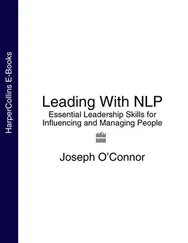John Gray - Children Are from Heaven - Positive Parenting Skills for Raising Cooperative, Confident, and Compassionate Children
Здесь есть возможность читать онлайн «John Gray - Children Are from Heaven - Positive Parenting Skills for Raising Cooperative, Confident, and Compassionate Children» весь текст электронной книги совершенно бесплатно (целиком полную версию без сокращений). В некоторых случаях можно слушать аудио, скачать через торрент в формате fb2 и присутствует краткое содержание. Год выпуска: 1999, ISBN: 1999, Издательство: HarperCollins e-books, Жанр: psy_childs, sci_pedagogy, Психология, на английском языке. Описание произведения, (предисловие) а так же отзывы посетителей доступны на портале библиотеки ЛибКат.
- Название:Children Are from Heaven: Positive Parenting Skills for Raising Cooperative, Confident, and Compassionate Children
- Автор:
- Издательство:HarperCollins e-books
- Жанр:
- Год:1999
- ISBN:978-0-06-133886-1
- Рейтинг книги:4 / 5. Голосов: 1
-
Избранное:Добавить в избранное
- Отзывы:
-
Ваша оценка:
- 80
- 1
- 2
- 3
- 4
- 5
Children Are from Heaven: Positive Parenting Skills for Raising Cooperative, Confident, and Compassionate Children: краткое содержание, описание и аннотация
Предлагаем к чтению аннотацию, описание, краткое содержание или предисловие (зависит от того, что написал сам автор книги «Children Are from Heaven: Positive Parenting Skills for Raising Cooperative, Confident, and Compassionate Children»). Если вы не нашли необходимую информацию о книге — напишите в комментариях, мы постараемся отыскать её.
Children Are from Heaven: Positive Parenting Skills for Raising Cooperative, Confident, and Compassionate Children — читать онлайн бесплатно полную книгу (весь текст) целиком
Ниже представлен текст книги, разбитый по страницам. Система сохранения места последней прочитанной страницы, позволяет с удобством читать онлайн бесплатно книгу «Children Are from Heaven: Positive Parenting Skills for Raising Cooperative, Confident, and Compassionate Children», без необходимости каждый раз заново искать на чём Вы остановились. Поставьте закладку, и сможете в любой момент перейти на страницу, на которой закончили чтение.
Интервал:
Закладка:
4.No, right now I am doing something else.
5.No, this is what we are going to do.
6.No, right now I want you to . . .
7.No, but let’s do this instead . . .
8.No, right now it is time to . . .
9.No, the plan is to . . .
10.No, right now I need to take a little alone time.
Besides giving children an opportunity to grow in their negotiation skills by giving clear “no” messages, children learn how to say no in their lives as well. Parents must not get upset with a child for asking for more. Permission to want more means the opportunity to ask. When parents clearly remember that they are not required to say yes, they can say no without feeling guilty. Besides making sure to take care of their own needs, parents who can say no comfortably provide a significant role model for their children. If a child continues to challenge a “no” message, all the parent has to do is simply say, “End of negotiation.”
ASKING FOR MORE
One day, at about the age of six, my daughter Lauren asked me to walk with her to town to get a cookie. This was a little ritual we used to do together. One time, I told her no, and then she began to plead and negotiate. A neighbor happened to be there and immediately cut her off with a shaming message. The neighbor said, “Lauren, don’t ask your father that. Can’t you see he’s busy? He can’t say no if you keep asking.”
Immediately, my three daughters, Shannon, Juliet, and Lauren, said in unison, “Oh, yes he can.” It was a memorable moment. I was so proud. Each of my daughters clearly understood that she had the right to ask, and I had the right and power to say no in return.
When parents make huge sacrifices to accommodate their children’s every request, this puts the burden of figuring out what is reasonable to ask for on the child. This is unhealthy. Eventually, the child will feel insecure about asking for anything. Instead, parents should give children permission to ask and give themselves permission to say no. In our house we often say, “If you don’t ask, then you don’t get, but when you ask, you don’t always get.”
If you don’t ask, then you don’t get, but
when you ask, you don’t always get.
Besides giving children permission to ask for more, parents need to also teach children how to ask. This is best done by modeling. When the parent makes requests in a respectful way, the child gradually learns how to ask.
MODELING HOW TO ASK
To teach children this important behavior, the most important technique is modeling. As we have explored in Chapter 3, instead of simply giving demands or commands, make sure that you make requests using “will,” “would,” “please,” and “thank you.” When children make demands or commands, instead of telling them not to be disrespectful, simply model a better way they could have expressed the request.
When a four year old says, “Daddy, give me that!” simply say in response, “Daddy, would you give me that? Sure, I would be happy to give you that.” Then, simply give him what he asked for as if he had said those words.
This technique made parenting so much easier for me.
When my children would become too demanding or sound disrespectful, instead of getting into a power struggle correcting them or trying to make them say what I wanted them to say, I simply modeled what I wanted them to say and then responded as if they had said it.
The only reason children don’t express themselves in a more respectful way is that they haven’t yet learned. We don’t need to correct them; we just need to demonstrate what works.
As parents, it is our job to teach them. As they continue to see that it feels good and it works, they follow suit.
If my daughter were angry and said, “Daddy, get out of my room,” I would say, “Daddy, would you please leave my room? Certainly, I would be happy to.” Then I would leave the room.
This clearly gives them the message of how to ask in a way that works. It would be a waste of time and energy to argue with my child, saying, “Don’t tell me what to do. You ask me politely or I will not leave.” This kind of approach just creates unnecessary resistance.
Children need to feel free to ask for what they want knowing that they will not be shamed. Even if it is not expressed perfectly, they should be respected in return. They also need to know that, just because they ask, it doesn’t mean that they will get what they want. The way they ask should not be the reason a parent says no. When a child asks, she is always doing her best. If she fails, she is not bad; she just needs more modeling, or more nurturing, or a time out.
THE POWER OF ASKING
By giving your children permission to ask for more, you give them the gift of direction, purpose, and power in life. Too many women today feel powerless because they were never given permission to ask for more. They were taught to care more about what others needed and shamed for getting upset when they didn’t get what they wanted or needed.
One of the most important skills a father or mother can teach a girl is how to ask for more. Most women did not learn this lesson as children. Instead of asking for more, they indirectly ask for more by giving more and hoping someone will give back to them without their having to ask. This inability to ask directly prevents them from getting what they want in life and in their relationships.
Most women experience problems in their
relationships, because they did not learn how
to ask for more as children.
While girls need more permission to want more, boys need a particular kind of support when they don’t get more. Quite often a boy will set his goals high, and parents will try to talk him out of his goals, because they want to protect him from being disappointed. They do not realize that, more important than achieving goals, is being able to cope with disappointment so that he can rise again to move toward his goals.
Just as girls need a lot of support in asking for what they want, boys need extra support to identify their feelings and move through them. For boys, this is best accomplished by asking for details of what happened while being extremely careful not to offer any advice or “help.” Even too much empathy “to help him” can turn him off to talking about what happened.
Mothers often make the mistake of asking too many questions. When pushed to talk, many boys stop. When given suggestions on how to cope, boys particularly will back off. At times, when a boy already feels beaten, he doesn’t need someone to make him feel worse by telling him how to solve the problem or what he did to contribute to the problem.
GIVING TOO MUCH
Whenever parents give too much, the children let them know.
They become overly demanding and unappreciative of what they have. When you give something and they want more because it is not enough, it is generally a sign that you are giving too much.
When parents give too much, the solution is to
pull back from making sacrifices for their child.
Let’s look at an example. One day, my daughter Lauren wanted an ice cream bar. I was doing a series of errands but she really wanted one. Instead of doing what I needed to do, I agreed to get her one. Although I didn’t realize it, I was giving too much.
I was bothered by the interruption, but I did it anyway.
In the store, after waiting in a long line, she decided she didn’t want the bar and wanted something else. She wanted me to go and find it. To do that I would lose my place in line and waste a lot of time. At that point, I realized that I was resenting her for being so demanding. She was clearly confused and asked if I was angry with her. I told her that I was just angry that this was taking so long.
Читать дальшеИнтервал:
Закладка:
Похожие книги на «Children Are from Heaven: Positive Parenting Skills for Raising Cooperative, Confident, and Compassionate Children»
Представляем Вашему вниманию похожие книги на «Children Are from Heaven: Positive Parenting Skills for Raising Cooperative, Confident, and Compassionate Children» списком для выбора. Мы отобрали схожую по названию и смыслу литературу в надежде предоставить читателям больше вариантов отыскать новые, интересные, ещё непрочитанные произведения.
Обсуждение, отзывы о книге «Children Are from Heaven: Positive Parenting Skills for Raising Cooperative, Confident, and Compassionate Children» и просто собственные мнения читателей. Оставьте ваши комментарии, напишите, что Вы думаете о произведении, его смысле или главных героях. Укажите что конкретно понравилось, а что нет, и почему Вы так считаете.












